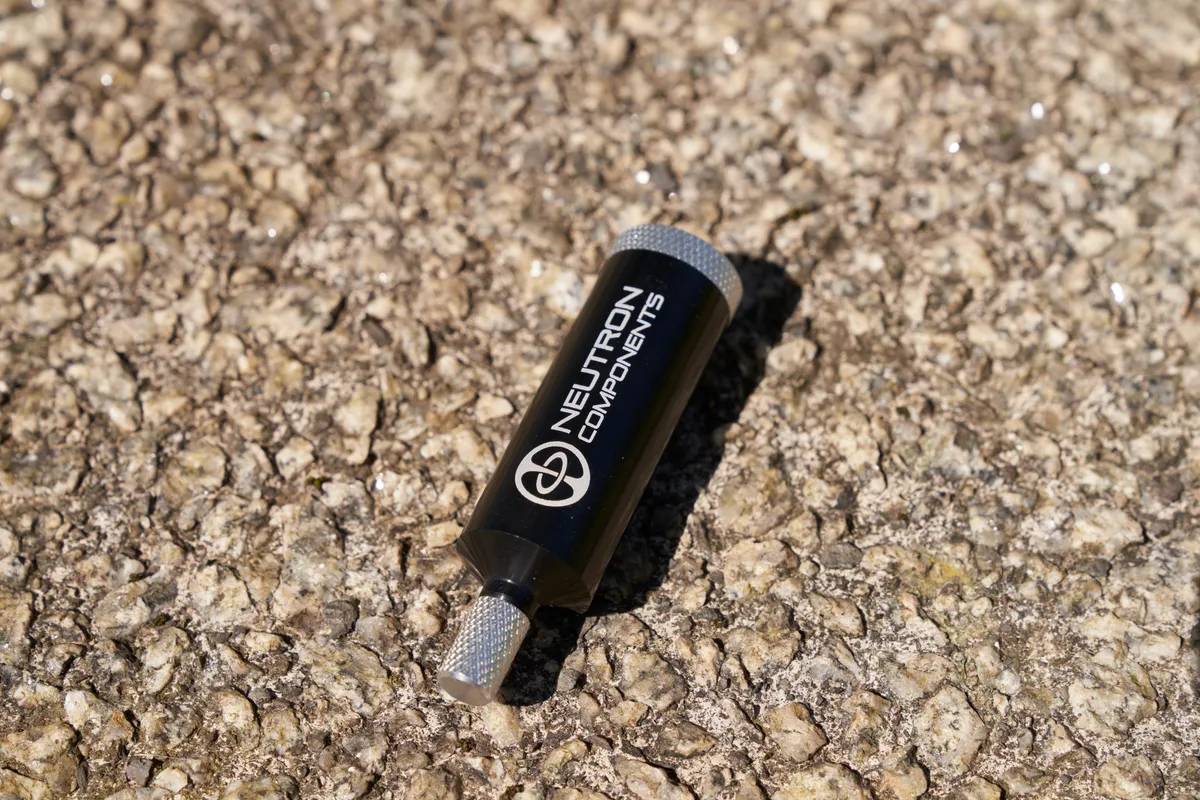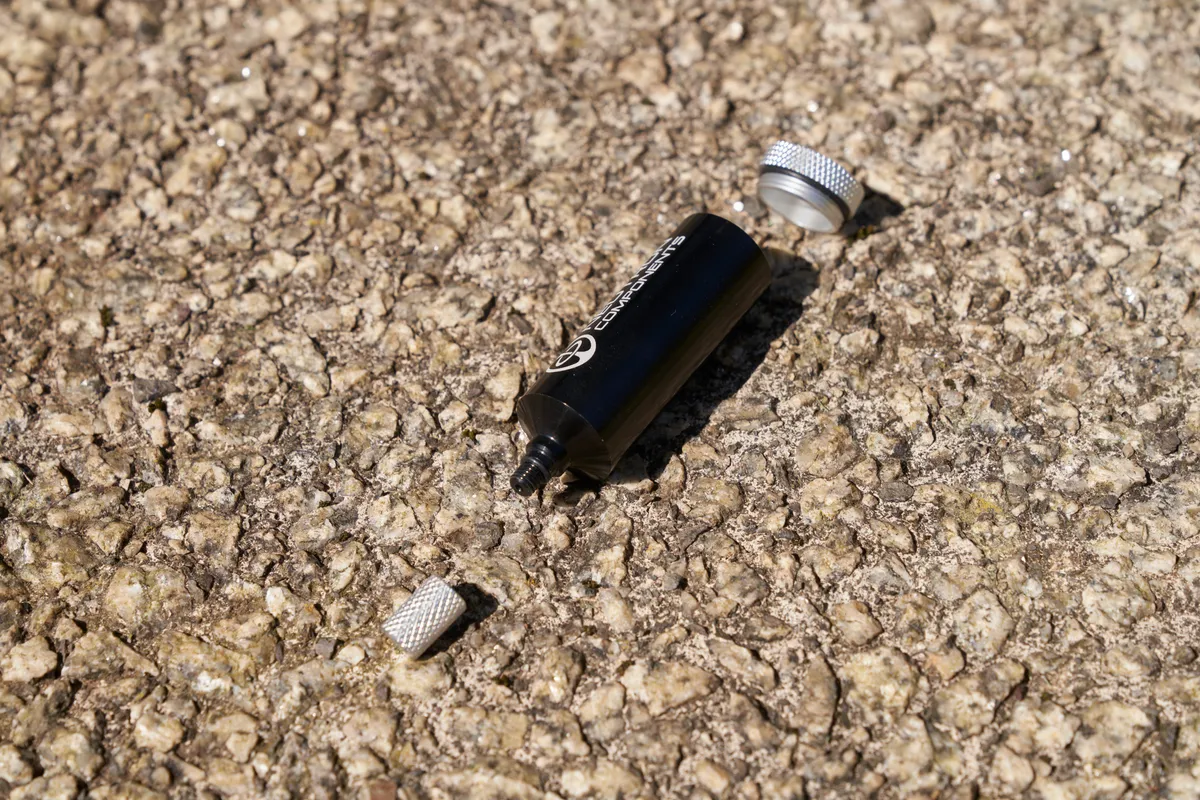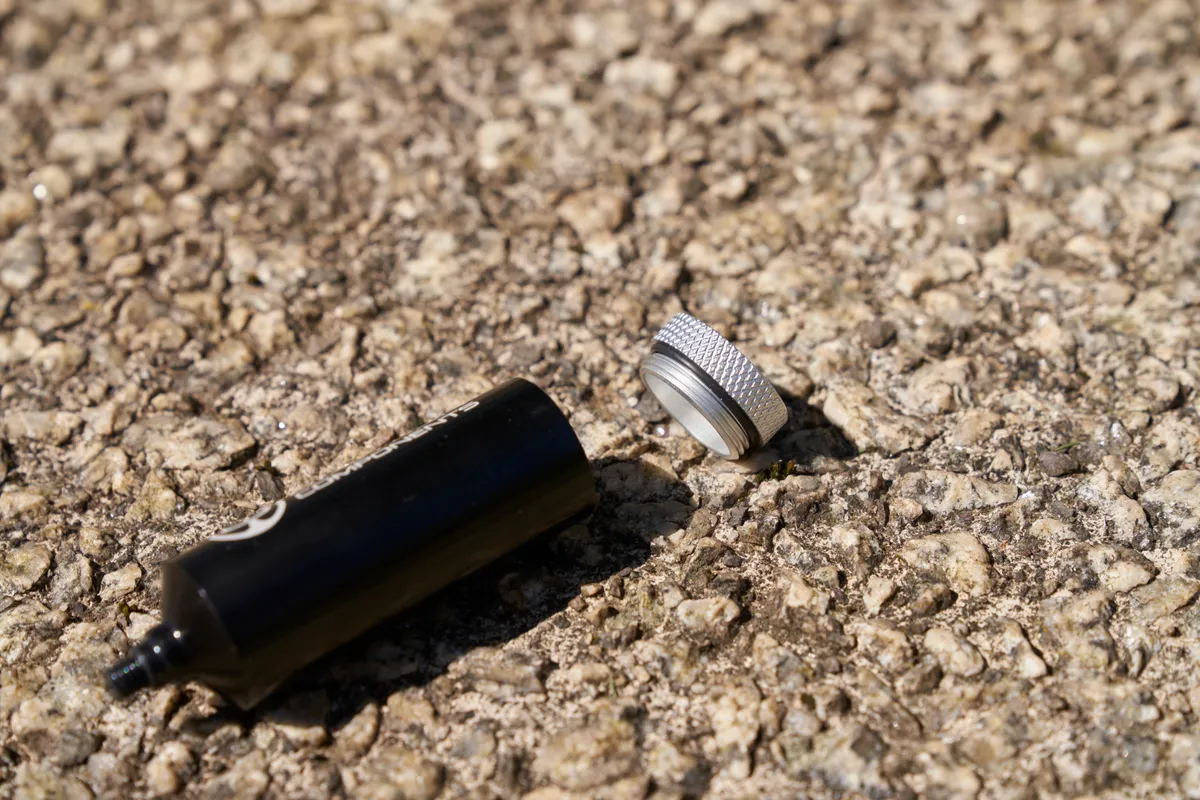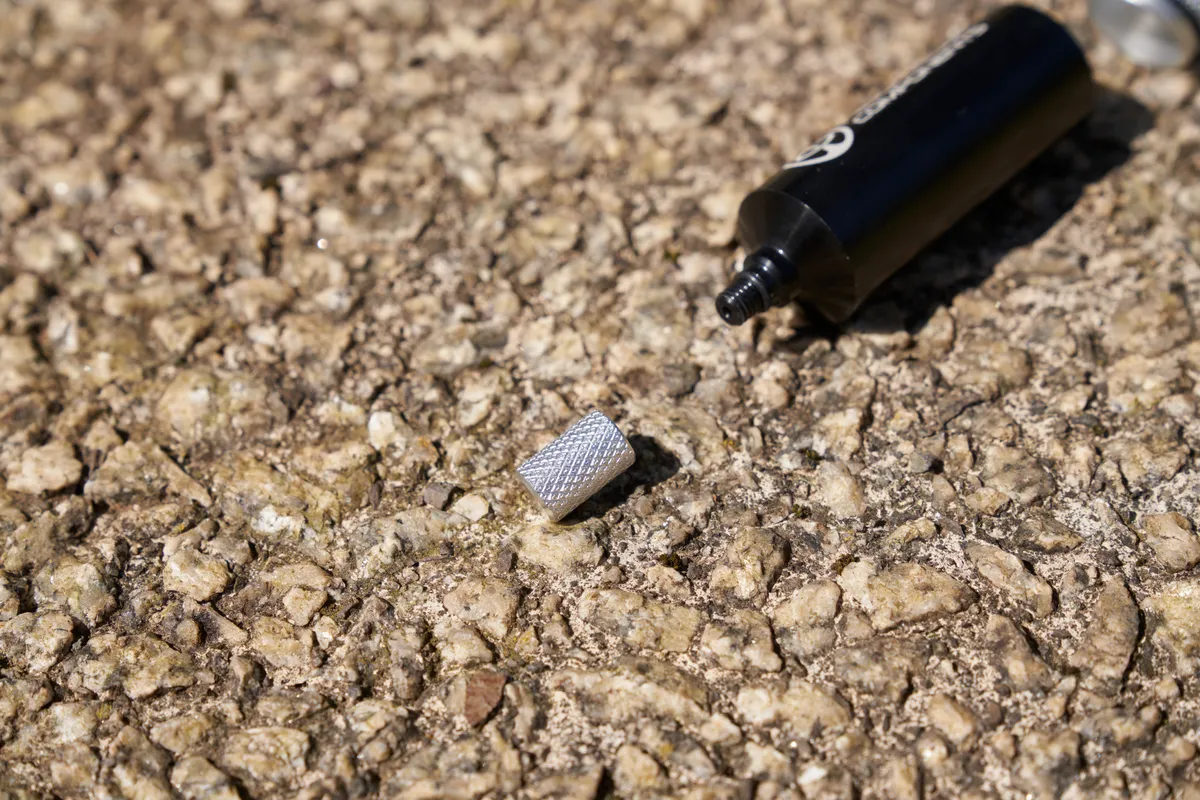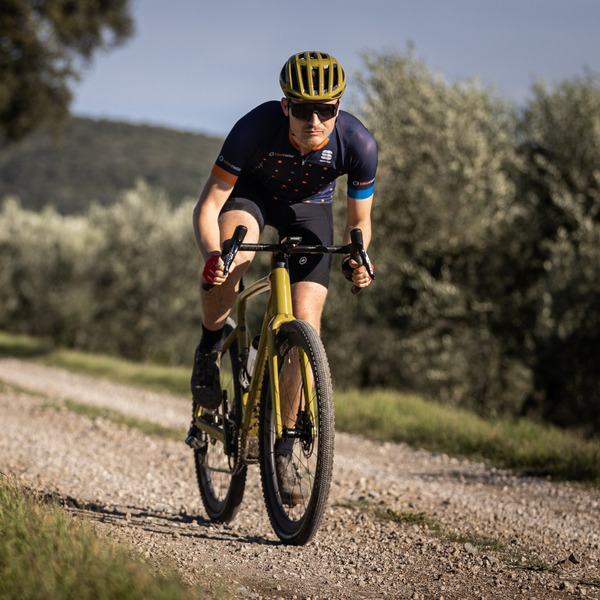Neutron Components’ Emergency Bleed Kit is a portable brake bleeding tool designed to restore your disc brakes to tip-top condition on the road or trailside.
Until now, the New Zealand brand has been best known for its sub-60g Ultralight First Aid Kit and its Oh Sh!t Kit, a multi-tool that stashes inside your handlebar.
The Emergency Bleed Kit is effectively a bleed bucket. The CNC’d aluminium funnel features two threaded caps on either end – a threaded lid and an M5 threaded connector at its base, matching most Shimano and SRAM bleed port screws.
Neutron says you should fill the Emergency Bleed Kit with 10ml of brake fluid before you set off for your ride, ready for when you need to use the kit.
The kit is 75mm long and I weighed it in at 19g (or 29g when full) on my digital scales.
Neutron claims the kit is leak-proof, a reassuring claim because the last thing you want is brake fluid spilling in your pack. The brand claims it has bench-tested the seals to an altitude of 12,000m.
A 2.5mm hex key and a T10 Torx key are included to suit both Shimano and SRAM bleed ports.
There's also a guide on how to use the kit, but the process is much like how you would burp-bleed Shimano disc brakes.
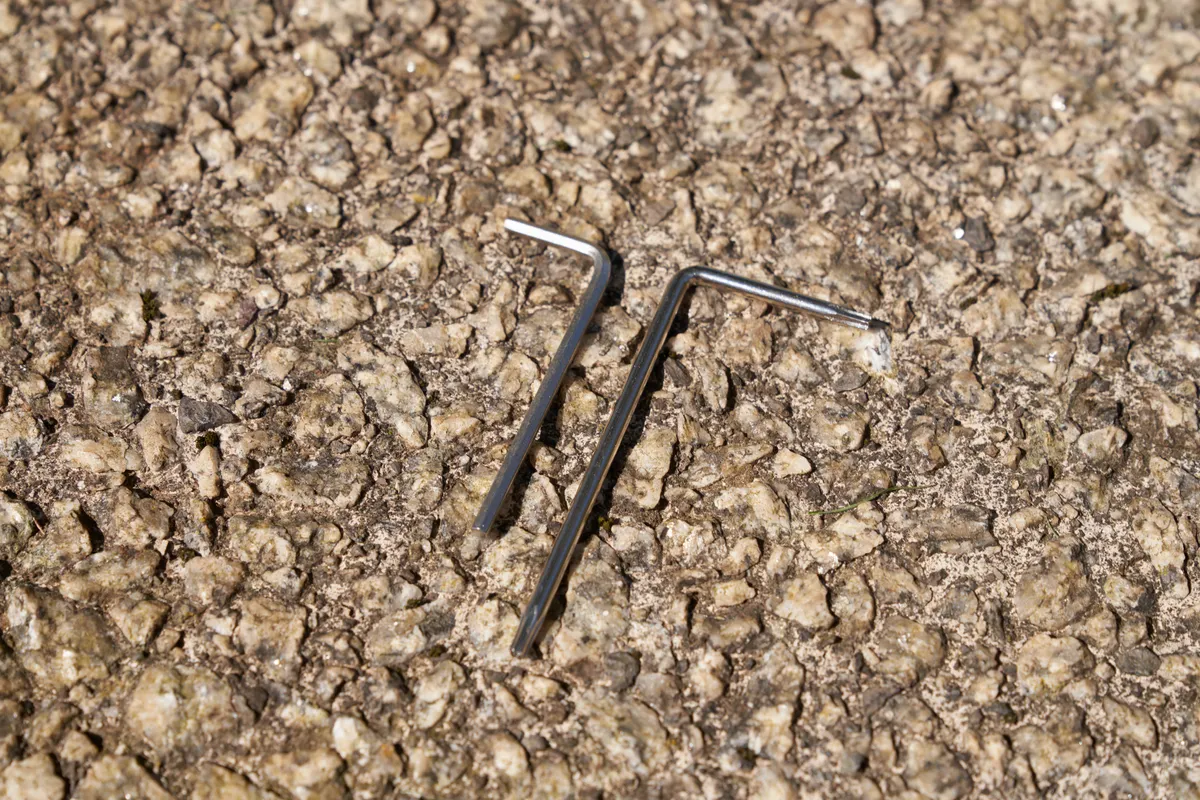
Neutron Components says it’s best to only use the tool with one type of brake fluid. Mineral and DOT fluid are not cross-compatible with one another. If you switch between brake fluids, make sure you scrupulously clean the bleed kit first with isopropyl alcohol.
The tool isn’t compatible with Shimano road or gravel, SRAM DB8 or Magura brakes, because they use different thread sizes (although you can use an adaptor for the former).
The kit retails for NZ$49, which converts to roughly £24.50/$31.50/€28/AU$45.
Neutron Components Emergency Bleed Kit impressions
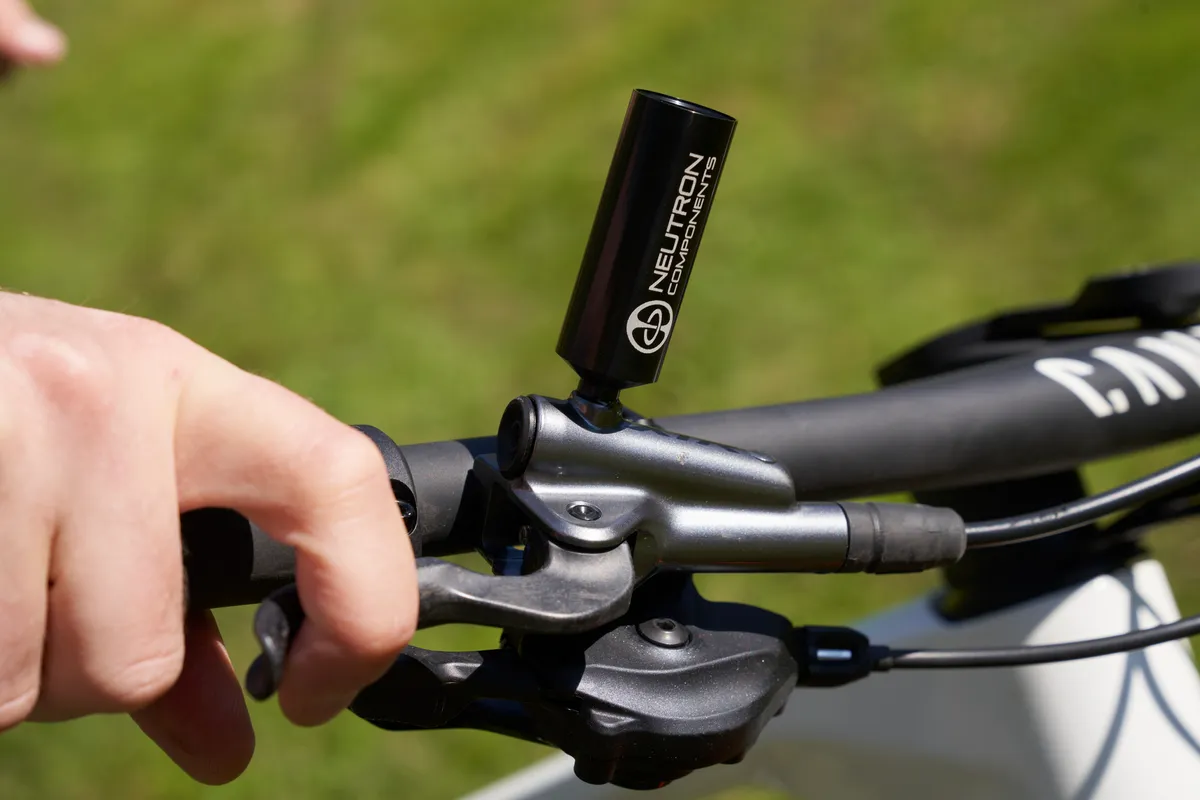
I tested the Neutron Emergency Bleed Kit on a couple of bikes with spongy-feeling levers.
I was pleasantly surprised by how well the kit performed – it works exactly as described.
Crucially, the kit seems to be fully waterproof. I dunked a filled kit in a glass of water and couldn’t detect any air bubbles escaping. That said, you’ll probably want to change the seals from time to time because seals can swell over time, particularly if you’re storing DOT fluid.
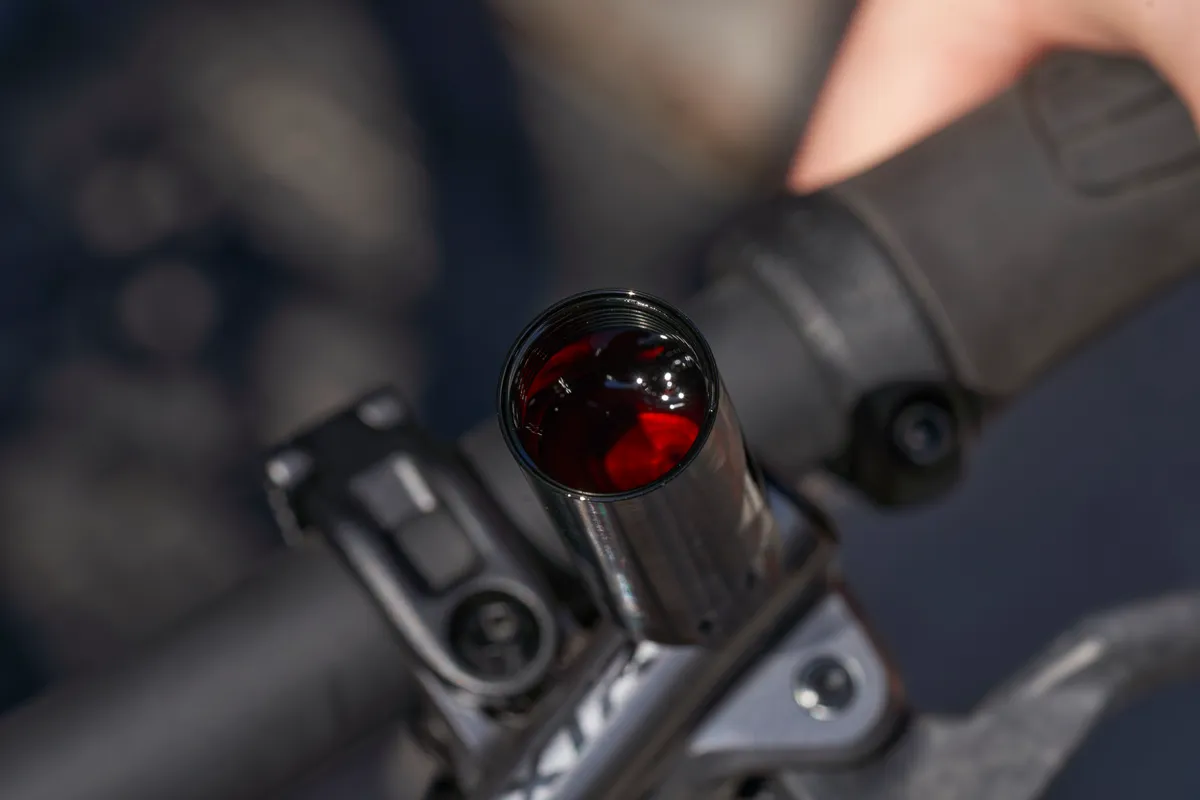
I burp-bled a Shimano XTR M9100 brake on a Canyon Lux World Cup, managing to eke a couple of rogue air bubbles out of the system and the brake felt noticeably firmer.
I thought the supplied hex keys would be throwaway items, but I was pleasantly surprised by their quality.
The keys were hard enough to avoid rounding the Shimano lever bleed ports screws, which are often as strong as soft cheese.
Things are a little different when it comes to bleeding SRAM brakes. You’d very rarely (if ever) burp-bleed a SRAM brake because, unlike Shimano’s bleeding process, you push and pull between the two syringes to remove air bubbles and pressurise the system.
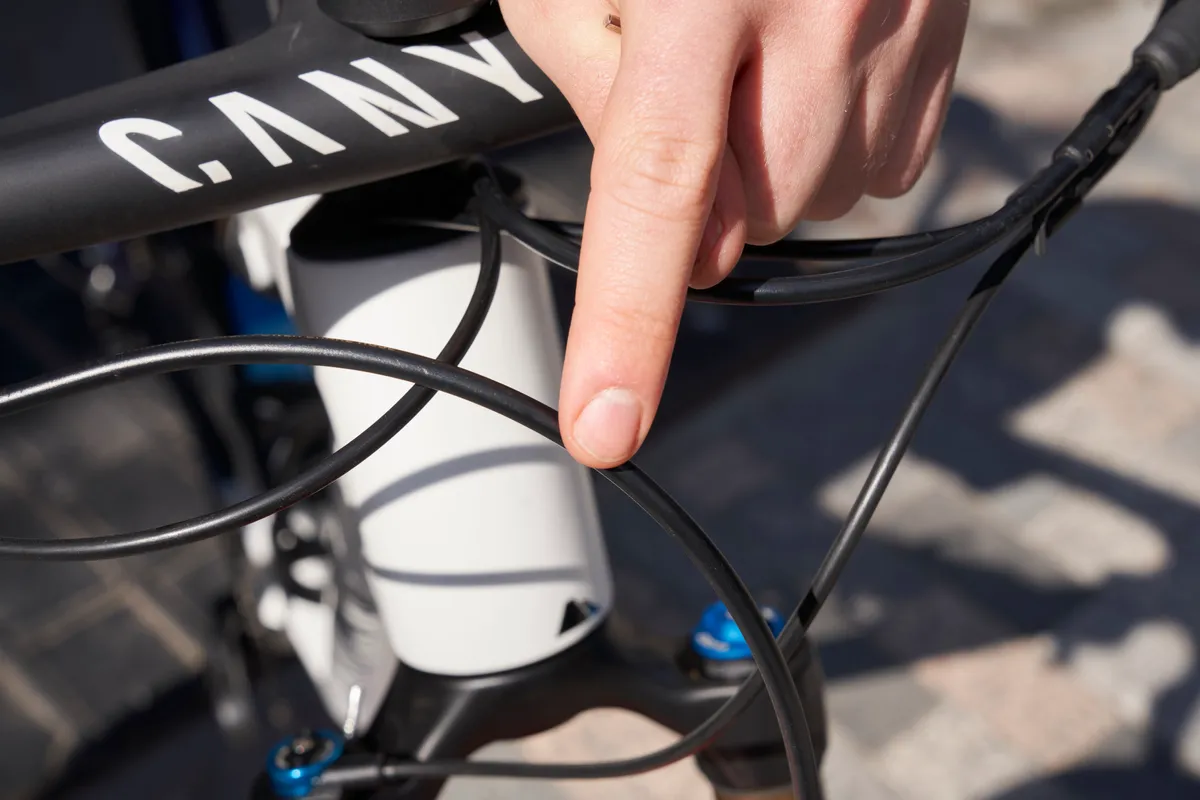
As a result, using the Emergency Bleed Kit to burp bleed a SRAM Code RSC made a minimal difference to the lever feel.
You’ll want to carry a rag that can get rid of any fluid that leaks, particularly DOT because it’s corrosive on paint.
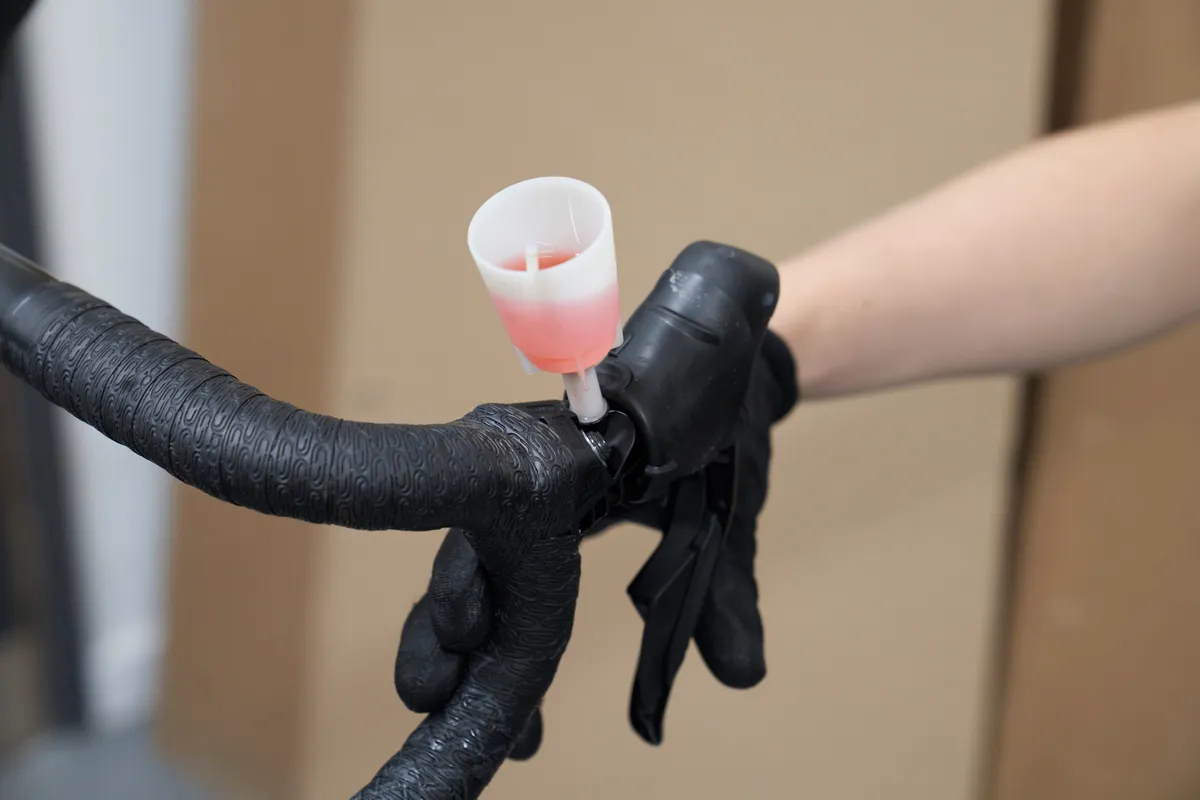
Is the Emergency Bleed Kit worth taking on your next bikepacking trip? Possibly not, if your bike is in tip-top condition. But it could prove useful if you're venturing into territory with no bike shops nearby.
While the kit is intended to be taken with you on rides, it's a significant step-up in quality from Shimano’s bleed bucket and could make a nice upgrade for any home or workshop mechanic.
